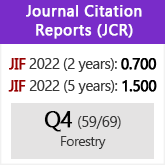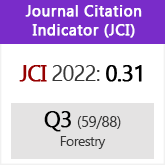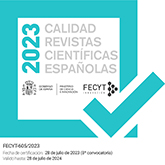Towards the dehesa total income accounting: theory and operative Monfragüe study cases
Abstract
There has been, from the beginning of the 1970s, a controversial debate on the income measurement of natural resource exploitation and sustainability both commercial and environmental of their economic resources. Treeless pastures and woodlands have been the focus of less research than has timber forestland. Up to today, institutional timber forestland accounting proposals have not integrated non-excludable and other non-market benefits into total income measurement of forestland. This paper shows a complete accounting system that can incorporate any economic benefit and cost that could accrue from active and passive uses of forestland, whether or not the economic effects are the result of on-site and off-site land uses. An application to the Spanish dehesas at Monfragüe area gives a tentative total income measurement under this new accounting proposal. The dehesa woodland study represents one of the most complex forestland uses system.Downloads
© CSIC. Manuscripts published in both the printed and online versions of this Journal are the property of Consejo Superior de Investigaciones Científicas, and quoting this source is a requirement for any partial or full reproduction.
All contents of this electronic edition, except where otherwise noted, are distributed under a “Creative Commons Attribution 4.0 International” (CC BY 4.0) License. You may read here the basic information and the legal text of the license. The indication of the CC BY 4.0 License must be expressly stated in this way when necessary.
Self-archiving in repositories, personal webpages or similar, of any version other than the published by the Editor, is not allowed.















